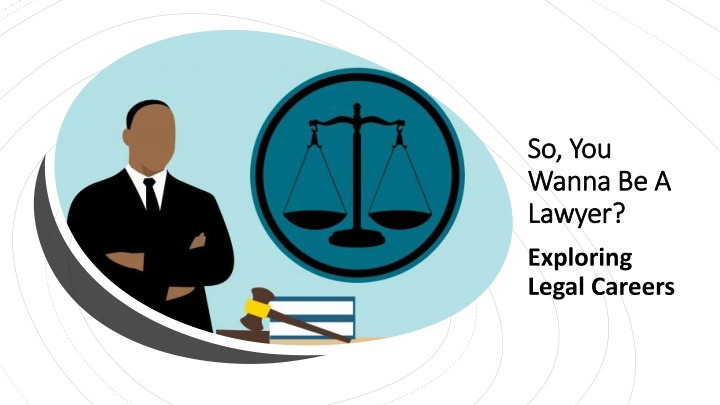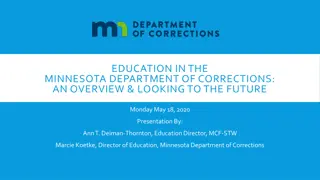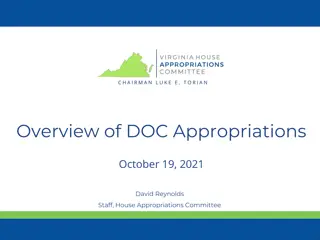
Unveiling Legal Career Realities: Myths, Discoveries, and Beyond
Explore the truth behind legal careers with insights on common myths, the functions of law, types of law, and reasons to reconsider law school. Understand the nuances of the legal field and debunk misconceptions in a comprehensive overview.
Download Presentation

Please find below an Image/Link to download the presentation.
The content on the website is provided AS IS for your information and personal use only. It may not be sold, licensed, or shared on other websites without obtaining consent from the author. If you encounter any issues during the download, it is possible that the publisher has removed the file from their server.
You are allowed to download the files provided on this website for personal or commercial use, subject to the condition that they are used lawfully. All files are the property of their respective owners.
The content on the website is provided AS IS for your information and personal use only. It may not be sold, licensed, or shared on other websites without obtaining consent from the author.
E N D
Presentation Transcript
So, You So, You Wanna Wanna Be A Lawyer? Lawyer? Be A Exploring Legal Careers
I. What do you think about when you hear the word law? a.Think about situations in the last 24 hours where you have had contact with the law: 1.Driving 2.Walking 3.Shopping 4.Watching TV b.What do the particular laws you are thinking about have in common? What consequences can result from these laws?
Functions of Law To prevent tyranny To preserve order To ensure fairness/equity To promote good behavior
Pa O
MYTHS ABOUT A LEGAL CAREER When you think about a law career and law school what comes to mind? 1. Law is the path to wealth While starting salaries at the very top are over $100,000 for large firms, the average starting for most lawyers is between $50,000 - $75,000 Highest paid attorneys work in large firms which make up only 1% of all firms. Highest paying firms average $150,000 starting, but only hire top students from top schools and expect 60-80 hours per week 2. Law is the conduit for positive social change The legal system is a slow way to evoke change Even if you change the law, you may not change people You won t specialize in public interest law, or any type of law for that matter, in law school. Evoking positive social change does not always pay well, and may not be enough to pay off debt. Minorities are woefully underrepresented in the legal field. 3. Law is a noble and lofty intellectual pursuit Legal work often involves small details and tedious work Not just arguing and advising, in some legal work you do not do either Hours of research are required Dealing with clients, who may not be the most reputable people Legal work is visual you have to like to read, write, and edit There are other professions careers, and academic pursuits that can be equally, if not more intellectually stimulating Don t go to law school because it is academically challenging and fun 4. Law is the path to career flexibility Law can open career paths, but employers often want to see a core set of skills and knowledge in a given field. Need to explore legal careers and other professions. 5. Law is glamorous just like on TV Do not pursue law just because you like name your favorite law-related TV show Cases do not always end in a trial - 95% of cases are resolved through settlements or plea bargains. 6. Law is the path to keeping a legacy alive Everyone in my family is a lawyer or I want to be like . . . Nexus LSAT Team. (2019). Before the LSAT - The Pre-Law Guidebook. Middletown, DE: Nexus LSAT.
REASONS NOT TO GO TO LAW SCHOOL Iffy job market Is the money there vis- -vis the investment Debt Are law schools keeping up with changes in the market and technology Are there other avenues to get to the same place Job is not that glamorous Stress and frustration Law students have some of the highest rates of mental health problems IT IS EXTREMELY HARD WORK!!! This Photo by Unknown Author is licensed under CC BY-NC-ND
BUT, I REALLY WANNA BE A LAWYER!!! 1. Know thyself 2. Learn about what lawyers do 3. Develop key skills: a. Law schools and the profession want people with a wide variety of backgrounds and interests b. Problem Solving c. Critical Reading d. Writing and Editing e. Oral Communication and Listening f. Research g. Organization and management h. Public Service i. Promotion of Justice j. Relationship-building, collaboration, networking k. Background Knowledge l. Exposure to the Law This Photo by Unknown Author is licensed under CC BY-SA-NC
HOW DO I ACQUIRE THESE SKILLS? - READ and WRITE - GET INVOLVED - PRACTICE THE SKILLS - MANAGE YOUR TIME - GAIN EXPERIENCE - TAKE COURSE AND DHOOSE A MAJOR WHICH ENHANCE THESE SKILLS Pursue something that interests you Take classes in writing, literature, philosophy, critical thinking, history, political science This Photo by Unknown Author is licensed under CC BY-SA-NC
Most common majors Political Science law and political theory Psychology how people think and behave Criminal Justice focus on criminal issues English reading, comprehension, writing, analysis History understanding the genesis of law Economics economic behaviors Philosophy ability to think and argue logically. Examines morality. Sociology view of society and role of law. Communications how to speak negotiate etc Science Humanities MAINTAIN A GOOD GPA A 3.5 OR HIGHER!! BELOW A 3.0 IS A RED FLAG
Application Application fee Credential Assembly Service (CAS) Law School Report Most law schools look closely at your college grades and course selection. UGPA is often a strong indicator of how well you'll perform in law school. Law schools also view difficult or advanced undergraduate courses more favorably. Many schools also consider your undergraduate performance trend. They may discount a slow start in your undergraduate career if you performed exceptionally well in later years. Similarly, a strong start followed by a mediocre finish could be an indication of less potential to succeed in law school. When you complete your applications, be sure to comment on any irregular grade trends in your academic record. Letters of recommendation The most effective letters of recommendation are written by professors or work supervisors who know you well enough to describe your academic, personal, or professional achievements honestly and objectively. Letters that compare you to your academic peers are often the most useful. Most schools do not consider general, unreservedly praiseworthy letters helpful. Personal statement Law schools want to recruit people who are qualified for reasons beyond grades and scores. The essay or personal statement is your opportunity to tell the committee what sets you apart from others. An essay on actual experiences and past accomplishments has more value to the committee than speculation about future accomplishments. Any noteworthy personal experience or accomplishment may be an appropriate subject, but be sure to do more than just state it. Describe your experience briefly but concretely, and explain why it had value to you. Tip from AccessLex: Use this 2-3 page essay to share what you will bring to the learning environment. This is a vital part of your application. The personal statement is not meant to be an academic paper. Think of it as a substitute for an interview - it is a chance for readers to understand your motivations as well as the perspective and personality you will add to the class. This Photo by Unknown Author is licensed under CC BY-SA This Photo by Unknown Author is licensed under CC BY
Law School Admission Test Your LSAT score is an integral part of your law school application for most law schools. Scores are based on the number of questions answered correctly (the raw score). There is no deduction for incorrect answers, nor are individual questions on the various test sections weighted differently. Raw scores are converted to an LSAT scale that ranges from 120 to 180, with 120 being the lowest and 180 the highest. Law School Admission Test English Proficiency Exam for International Students If English isn't your native language, most law schools will ask that you take a standardized test, such as the Test of English as a Foreign Language (TOEFL) or the International English Language Testing System (IELTS). As you consider schools, make sure you identify which schools require this test. Each school has its own standards for minimum required scores. LSAC accepts score reports for either TOEFL or IELTS exams. Work Experience Law schools want diverse, interesting classes that represent a variety of backgrounds. A candidate who applies to several years after college, and who has succeeded in a non- academic environment, may be seen as more motivated than someone who continues his or her education without a break. Any additional requirements unique to that particular school English Proficiency Exam for International Students Work Experience Any additional requirements unique to that particular school
Your undergraduate grade-point average (UGPA) and LSAT score are most predictive for success in law school and are fundamental for admission decisions.
27 Law Jobs for Law School Graduates U.S. News and World Reports https://www.usnews.com/education/best-graduate-schools/top- law-schools/slideshows/10-diverse-careers-for-law-school- graduates?slide=17



